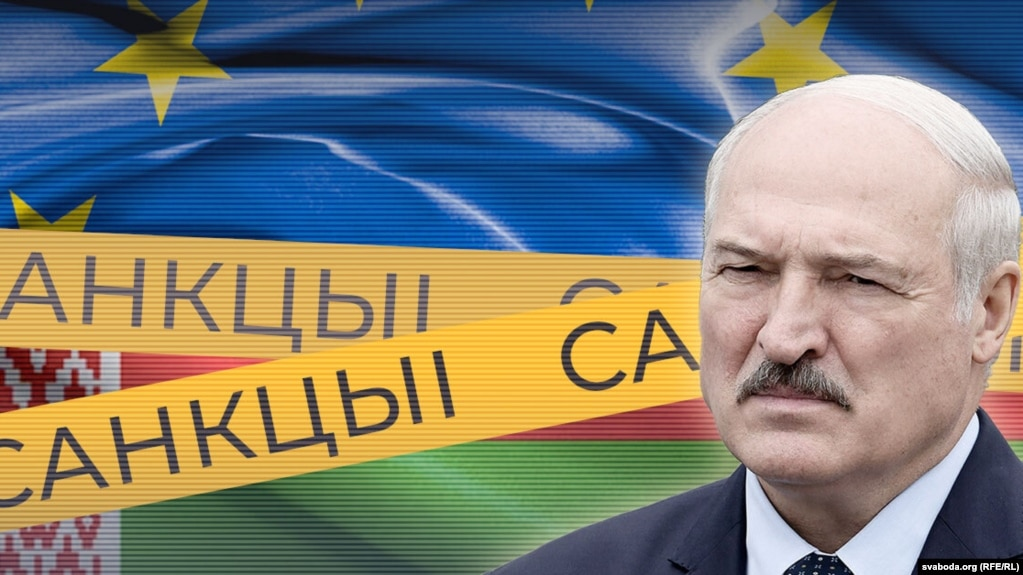In response to new sanctions from the West, the Lukashenka regime is trading in sovereignty and the Russian threat
 The situation has not changed
The situation has not changed

The EU, in coordination with other Western allies, introduced new sanctions against the Lukashenka regime and immediately started to prepare the next package. In response, the Lukashenka regime tried, to no avail, to establish channels of communication with Western countries on its own terms, and resumed bargaining in sovereignty and speculating on the Russian threat. The West ignored these signals and, instead, involved Russia in seeking a joint solution to the Belarusian crisis as part of a broader geopolitical deal.
Following the introduction of the fifth package of sanctions by the EU, the UK, the USA and Canada introduced new sanctions restrictions against Belarus. In response, the Lukashenka regime promised not only to consider the possibility of expelling Western diplomats but also to respond asymmetrically, threatening new challenges to stability and security in the region. Meanwhile, the EU has begun work on the sixth package of sanctions, which could be introduced as early as January-February 2022.
Despite the harsh rhetoric, Belarusian diplomacy actively sent signals about the desire to restore communication channels with Western countries using the Council of OSCE Foreign Ministers in Stockholm held on December 1-2. During his speech, Belarusian Foreign Minister Uladzimir Makei accused NATO of building up military potential, spoke out against the sanctions pressure on Belarus, but also said that Minsk was ready to contribute to strengthening bilateral cooperation, including within the OSCE. He met with OSCE / ODIHR Head Matteo Mecacci, Turkish Foreign Minister Mevlut Cavusoglu, Swedish Foreign Minister Ann Linde, Hungarian Foreign Minister Peter Siyjarto, that is, countries which are considered as possible mediators in the dialogue between the Lukashenka regime and the West. Several meetings were held in secrecy.
The technical dialogue between Minsk and Brussels to eliminate the consequences of the migration crisis, as expected, did not bring any diplomatic and economic benefits, and the Belarusian side was forced to admit this. Hence, the Lukashenka regime tried to convey several messages to its Western partners. First, Minsk sees an equal dialogue with the West and mutually beneficial cooperation as the only way out of this situation. Secondly, Belarus risks losing its statehood if the sanctions pressure from the West continues, hinting at challenges and threats to sovereignty and independence from Russia.
That said, Western states continued to involve Russia in resolving the Belarusian crisis. Thus, British Foreign Minister Liz Truss called on her colleague Sergei Lavrov to use the position of Russia to convince the Lukashenka regime to start a dialogue with opposition leaders through the mediation of the OSCE. US Secretary of State Anthony Blinken saw Russia’s geopolitical strategy in provoking a migration crisis with the help of the Belarusian regime, creating a military threat to Ukraine and exercising energy pressure through high prices for Russian gas. Thus, Belarus is on the agenda of the upcoming online summit between the presidents of the United States and Russia on December 7.
The Kremlin, in turn, made it clear to its Western partners that it was also unhappy with Lukashenka who threatened to cut off the transit of Russian energy resources to Europe.
After a failed migration blackmail, Minsk resorted to its favourite tactics of bargaining in sovereignty and the “Russian threat.” However, amidst active interaction between the Kremlin and Western capitals regarding the Belarusian crisis, and a broader discussion between the United States and Moscow about a new geopolitical deal, including security guarantees for Russia from NATO expansion eastward, this tactic is doomed to failure. In these circumstances, Belarus’ attempt to balance the pressure from the West and Russia with the help of China without breakthroughs in relations with Western capitals is futile.
Subscribe to our newsletter




Situation in Belarus
Constitutional referendum: main consequences


 Video
Video
How to count the political prisoners: are the new criteria needed?


 Video
Video
Paternalism In Decline, Belarusian Euroscepticism, And The Influence Of Russia


 Video
Video












